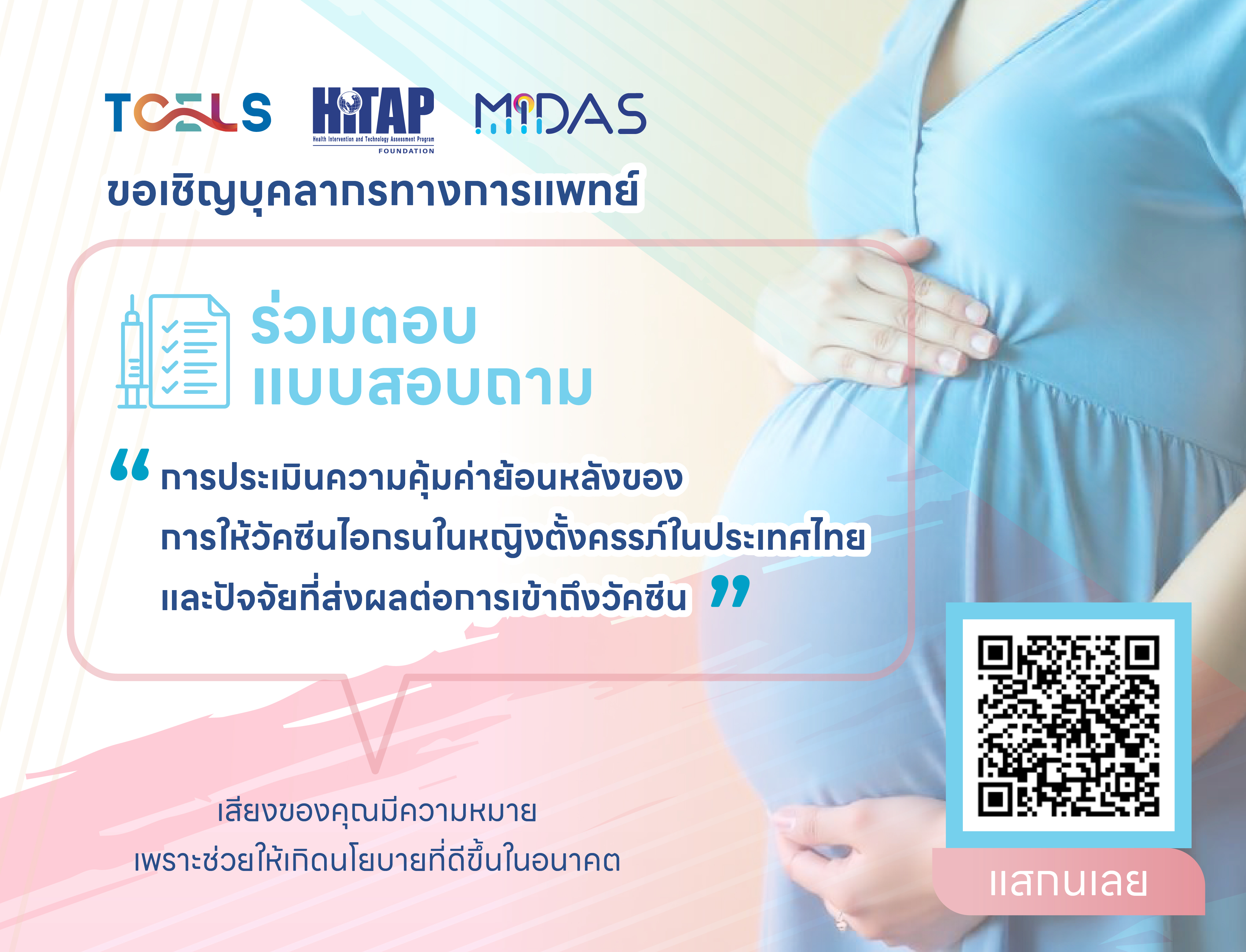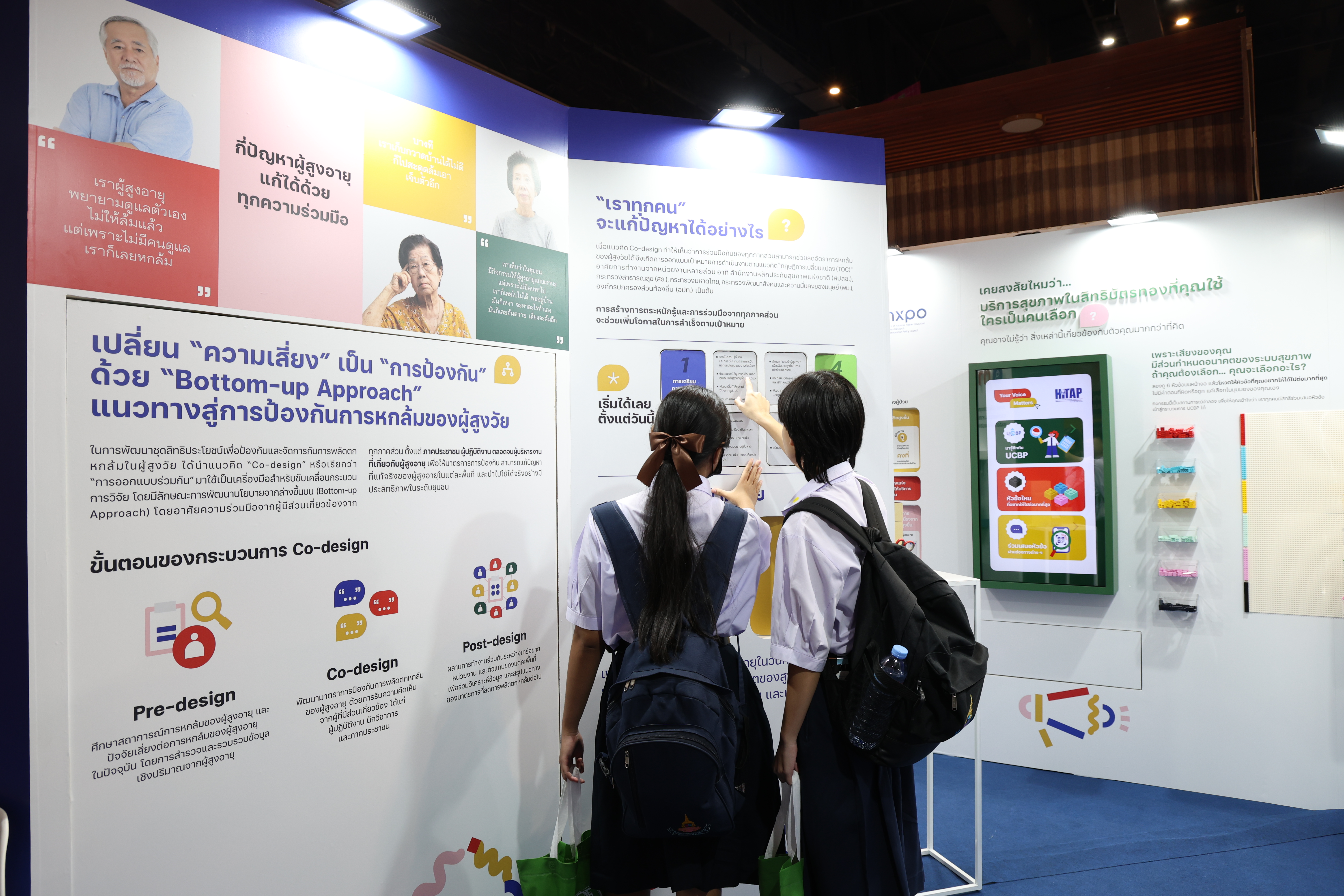ขอเชิญบุคลากรทางการแพทย์ร่วมตอบแบบสอบถาม “การประเมินความคุ้มค่าย้อนหลังของการให้วัคซีนไอกรนในหญิงตั้งครรภ์ในประเทศไทย และปัจจัยที่ส่งผลต่อการเข้าถึงวัคซีน”



Hundreds of thousands of pregnant women across the UK are to be offered a whooping cough vaccine to protect babies from an escalating outbreak of the disease.
Very young babies are at the greatest risk of serious complications. Ten have died in the UK this year.
The injection, available from Monday, should boost a mother’s defences, which are then passed onto the baby.
Health officials say there are no safety concerns about the vaccine.
There are surges in whooping cough cases every three to four years and the latest outbreak started at the end of 2011. It is already the worst for more than a decade.
Unprotected
Babies under six months of age are the most vulnerable. They are too young to be protected by routine vaccination, which starts at two months of age. The infection can stop the baby breathing or lead to pneumonia, brain damage, weight loss and death.
Women who are between 28 and 38 weeks pregnant are to be offered a combined whooping cough, tetanus, diphtheria and polio vaccine. About 730,000 women a year could be given the vaccine.
Prof David Salisbury, the director of immunisation at the Department of Health, said: “We’re boosting the mother to protect the baby. We can’t protect babies until they are eight weeks, but their mothers can.”
The mother’s immune system should respond to the injection by producing whooping cough antibodies, which then cross the placenta into the developing child.
This should provide enough protection until the baby has its first routine vaccine.
Women are being advised to have the vaccine even if they have been vaccinated before and that they should be vaccinated during all subsequent pregnancies.
Prof Salisbury said the safety of the vaccine was “excellent” and there were “no concerns” about using the vaccine during pregnancy, although some women would develop a fever.
“There is a clear benefit and no evidence of risk,” he said.
Outbreak
Before routine vaccination in 1957, whooping cough outbreaks in the UK were on a huge scale. It could affect up to 150,000 people and kill 300 in a single year.
The latest figures from the Health Protection Agency reported 4,791 cases in 2012 – 1,230 in August alone. There were only 908 cases in the whole of 2008 during the last outbreak.
Scotland has reported 508 cases up to mid-June while Northern Ireland had 139 cases up to mid-July. Both figures are significantly higher than for the previous year.
The chief medical officer for England, Prof Dame Sally Davies, said: “Whooping cough is highly contagious and newborns are particularly vulnerable.
“It’s vital that babies are protected from the day they are born – that’s why we are offering the vaccine to all pregnant women.”
The vaccine will be offered during routine antenatal appointments with a nurse, midwife or GP.
The vaccination programme is only temporary to deal with the heightened risk of whooping cough infection during this outbreak.
A similar programme is already under way for pregnant women in the US, although the evidence for its effectiveness is still unclear.
Dr Mary Ramsay, the head of immunisation at the Health Protection Agency (HPA), welcomed the measure.
“We have been very concerned about the continuing increase in whooping cough cases and related deaths.
“It’s also important we continue to remind all parents to ensure their children are vaccinated against whooping cough to continue their protection through childhood.
“Parents should also be alert to the signs and symptoms – which include severe coughing fits accompanied by the characteristic ‘whoop’ sound in young children but as a prolonged cough in older children or adults. It is also advisable to keep their babies away from older siblings or adults who have the infection.”
Other groups including the Royal College of Nursing and the Royal College of Paediatrics and Child Health have backed the scheme.
http://www.bbc.co.uk/news/health-19729989